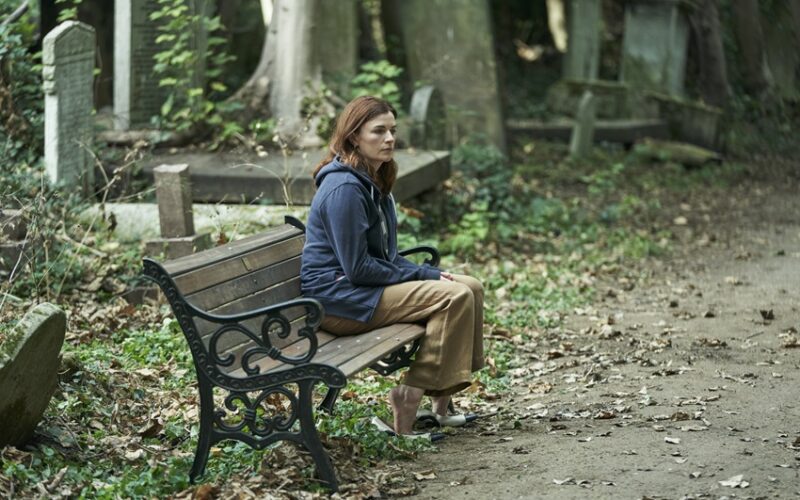And Mrs (Reisinger, 2024)
And Mrs flirts with being a great melodrama, and it flirts with being a mediocre comedy. I was rooting for it right up to the end, but when I thought it had landed on the side of taking its premise seriously it had (what looked to me like) a failure of nerve and opted for quirky genre cliches over genuine insight into human psychology.
Gemma (Aisling Bea) is an Irish woman living in London who is reluctant to commit to her current relationship. Her American fiancé dies before their wedding day, but she decides she wants to marry him anyway.
The film has genuine insight into grief, and at its best, it allows Audrie Gemma to explore the meaning of marriage in a way few more serious films let their characters even try. Whenever she is arguing with the local magistrate about whether her plan is legal, trying to convince her deceased fiancé’s family to grant their permission for a postmortem union, or attempting to persuade her own family that she will not regret making this decision when the grief wears off, the film is on a different level.
The cast appears to sense this. The dramatic scenes are played with more energy and earnestness, but it felt to me like they were chafing against the script. Lourd, Bea, for instance, is quite effective at representing Audrie’s Gemma’s internal conflicts, but the film insists on the device of showing her dead fiancé in scenes where she is remembering or imagining him, underlining points that have already been made with more nuance through performance. Nowhere is the trend to tell as well as show more dishearteningly adhered to than in the film’s final scenes where well-earned emotion is slathered in pop music cliches. “Please tell me she is not going to sing,” I pleaded to the screen to no avail. Lourd, Bea, miraculously, finds some portion of emotional ballast in a scene that thinks it is alleviating rather than undercutting the pain the character has had to endure to get to her climactic moment. A payoff that would have landed hard if it had been understated instead swings wildly and makes only a glancing blow.
So where does that leave us in the binary world of thumbs up/thumbs down aggregators? I think more viewers will enjoy it than not, even if those of us who might enjoy it the most will find their pleasure tempered with disappointment. Perhaps it is appropriate given that a major theme of the film is what might have been.


Hi
Aisling Bea plays the main character in this movie.
Other than that, I agree with your analysis- I thought it played better as a serious treatise on grief – something Aisling Bea understands at a visceral level as she lost her father to suicide at a young age. And when the credits rolled and photos appeared of people the cast had lost (including a photo of Billie Lourd’s mother, Carrie Fisher), I was undone.
Thank you for the correction. While the entire cast is terrific, you are correct that I meant to single out Bea, not Lourd, for her work as the protagonist, Gemma.